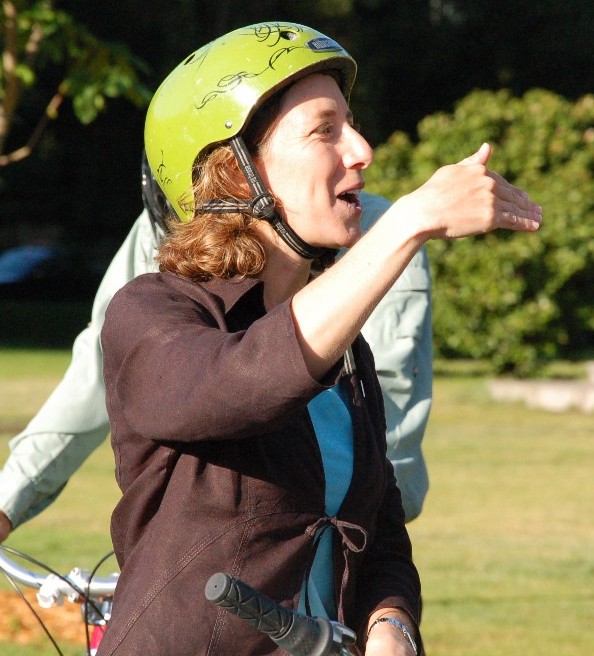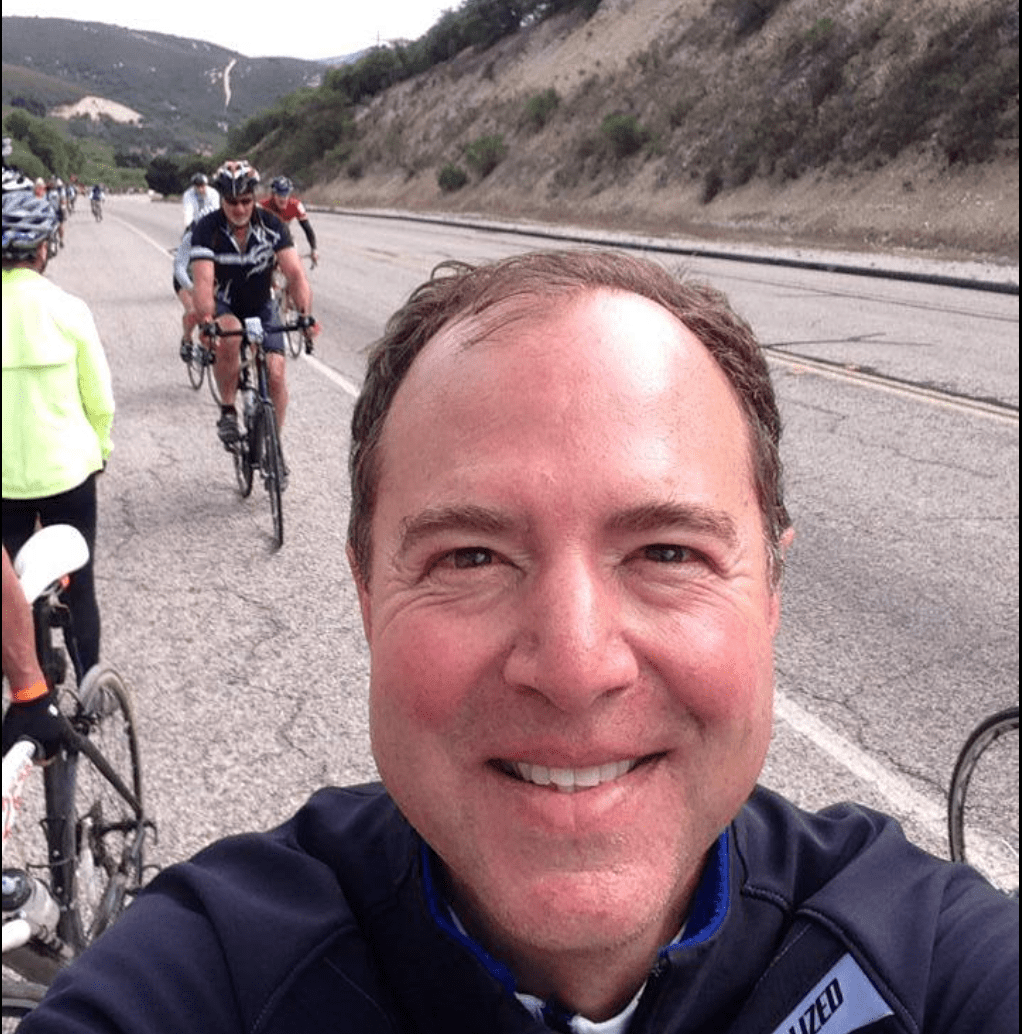Leah Shahum to Step Down as SF Bicycle Coalition’s Executive Director
4:42 PM PDT on August 12, 2014
Leah Shahum announced today that she will step down as executive director of the San Francisco Bicycle Coalition, after 12 years at the helm.

“Leah leaves behind a legacy of one of the most bike-friendly big cities in America, and one of the most well-organized and effective membership groups in the country,” said Lawrence Li, the SFBC's Board President. She will continue to serve in the position until the end of the year, and the SFBC's board has launched a nationwide search to fill the role.
"I've never felt more confident in where this organization and city can go, with the kind of leadership and passion and skills that we have on our team today," said Shahum.
Shahum said she doesn't have a long-term plan yet after she leaves the SFBC, but that she plans to take part in the German Marshall Fund Urban and Regional Policy Fellowship Program next spring. She'll head to northern Europe to study how cities like Berlin, Rotterdam, and Stockholm have pursued Vision Zero -- an end to traffic fatalities. She noted that she chose cities that have populations, densities, and other characteristics comparable to SF.
Another recent participant in the fellowship was Streetsblog founder Aaron Naparstek. Shahum was instrumental in convincing him to launch Streetsblog San Francisco in 2009. She has since written articles for Streetsblog, sharing lessons on livable streets from her time in Amsterdam, Copenhagen, and Paris.
Shahum started as a volunteer for the SFBC 17 years ago, and eventually became the organization's program director before succeeding Dave Snyder as executive director. Since then, the SFBC's membership grew from 3,000 to 12,000 in 2011, making it the largest city-based bicycle advocacy organization in the U.S. Today, SFBC membership remains at more than 10,000, and the SFBC has a staff of 17.
Snyder, who jumpstarted the long-dormant SFBC as the sole staffer in 1996, said Shahum had planned to leave her part-time volunteer coordinator position to pursue a journalism career. "I didn’t want her to leave, so I offered her a full-time job as our first-ever 'program director.' I didn’t have the budget for it but I stretched, and the risk paid off," said Snyder, who today serves as executive director of the California Bicycle Coalition.
"Hiring her before we were ready was the best thing I ever did," he said. "Years later, knowing she could take over effectively made it possible for me to leave the organization in 2002. She leaves the organization much better than she found it, with a larger, stable budget and a very talented team."
An SFBC press release highlighted the organization's accomplishments under Shahum's leadership, such as the Connecting the City campaign, which has recently helped win bike lanes like the Polk contra-flow lane, and bike lanes on Fell and Oak Streets, Cesar Chavez Street, and the northbound buffered bike lane on San Jose Avenue. The SFBC also helped get BART to lift bike bans together with Bike East Bay, and helped win more bike capacity on Caltrain. The SFBC's Great Streets Project "helped jumpstart" SF's parklet program, and it teamed with Livable City to facilitate the launch of Sunday Streets with Livable City. Each year, the SFBC teaches 2,500 people a year to ride a bike, and 1,500 drivers to share the road with bikes.
Thanks to a 96 percent increase in bicycling since 2006, "San Francisco has become one of the best bicycling cities in America, in large part due to the vision and leadership of Leah and the SF Bicycle Coalition,” said a statement from Senator Mark Leno, who helped the SFBC win measures like a bill that authorized a camera to enforce against illegal turns across the bike lane at Market Street and Octavia Boulevard.

Shahum said that throughout her time at the SFBC, she's watched bicycling become part of the mainstream on the streets and at City Hall. When she started, only a few supervisors participated in Bike to Work Day, but nowadays, it's attended by the mayor and nearly every supervisor and department head. "These days, as I ride home, I’m awestruck that a regular weekday commute feels like what Bike to Work Day did all those years ago!," Shahum wrote in a letter to SFBC members today [PDF].
"Leah has been an amazing advocate for safer streets," said Supervisor Eric Mar. "Together, we have reduced bicycle theft, encouraged healthy activities among our youth, and worked to improve transportation access to low-income residents. I know that she will continue to fight for healthier, more sustainable cities in whatever she does next."
The SFBC also has built closer alliances with pedestrian safety and disability advocates, she said, and gained support from "more mainstream communities," like business groups that "are promoting biking because they see a benefit to their work as well."
There's also a major difference in the SFBC's work today, Shahum noted, with the organization's focus on promoting family biking, which "didn't seem realistic" in the late 90s. Shahum gave credit to the nationwide expansion of Safe Routes to School Programs, which was spearheaded by bike advocates in Marin County.
"Back when I started, the phrase of '8-to-80' level biking wasn't on people's minds," she told Streetsblog. "Today, I think we very rightly value the bikeability of a street based on what it would feel like to an 8-year-old or an 80-year-old. We don't assume that everyone biking is a 22-year-old guy."
"We're not seen as a special interest group anymore, because we're not."
Stay in touch
Sign up for our free newsletter



